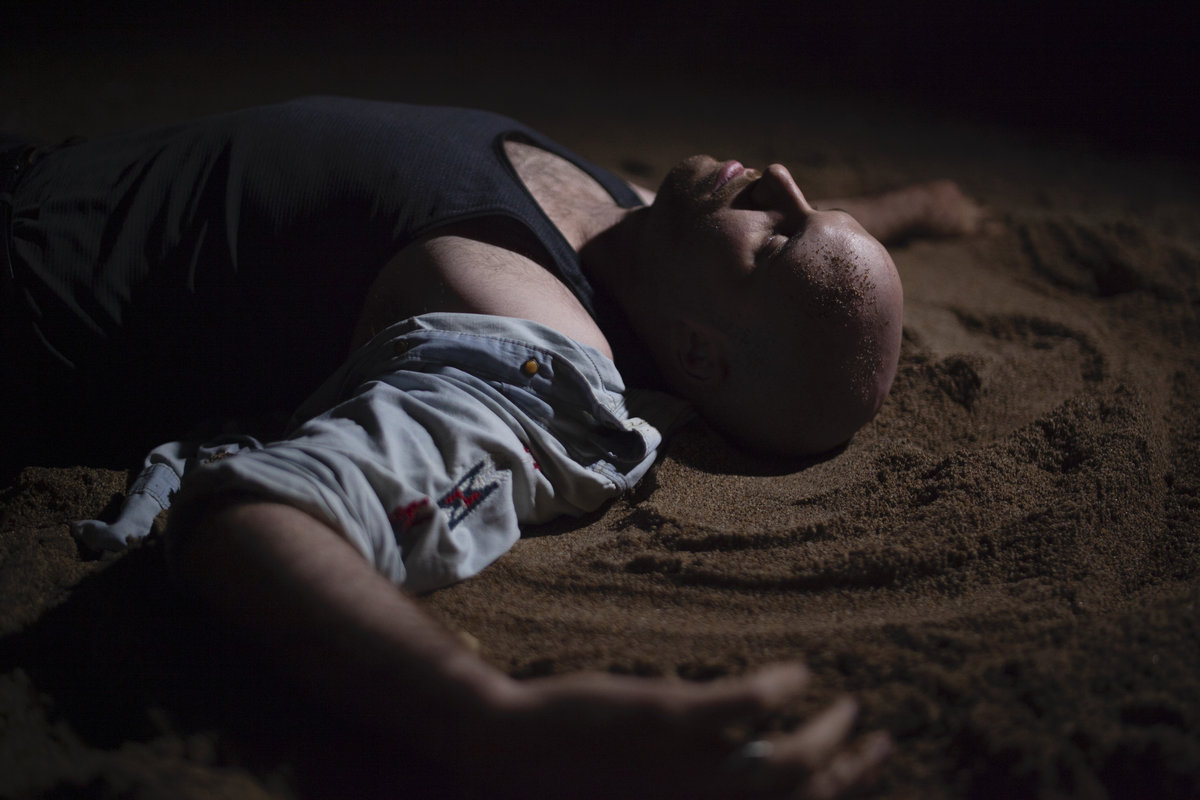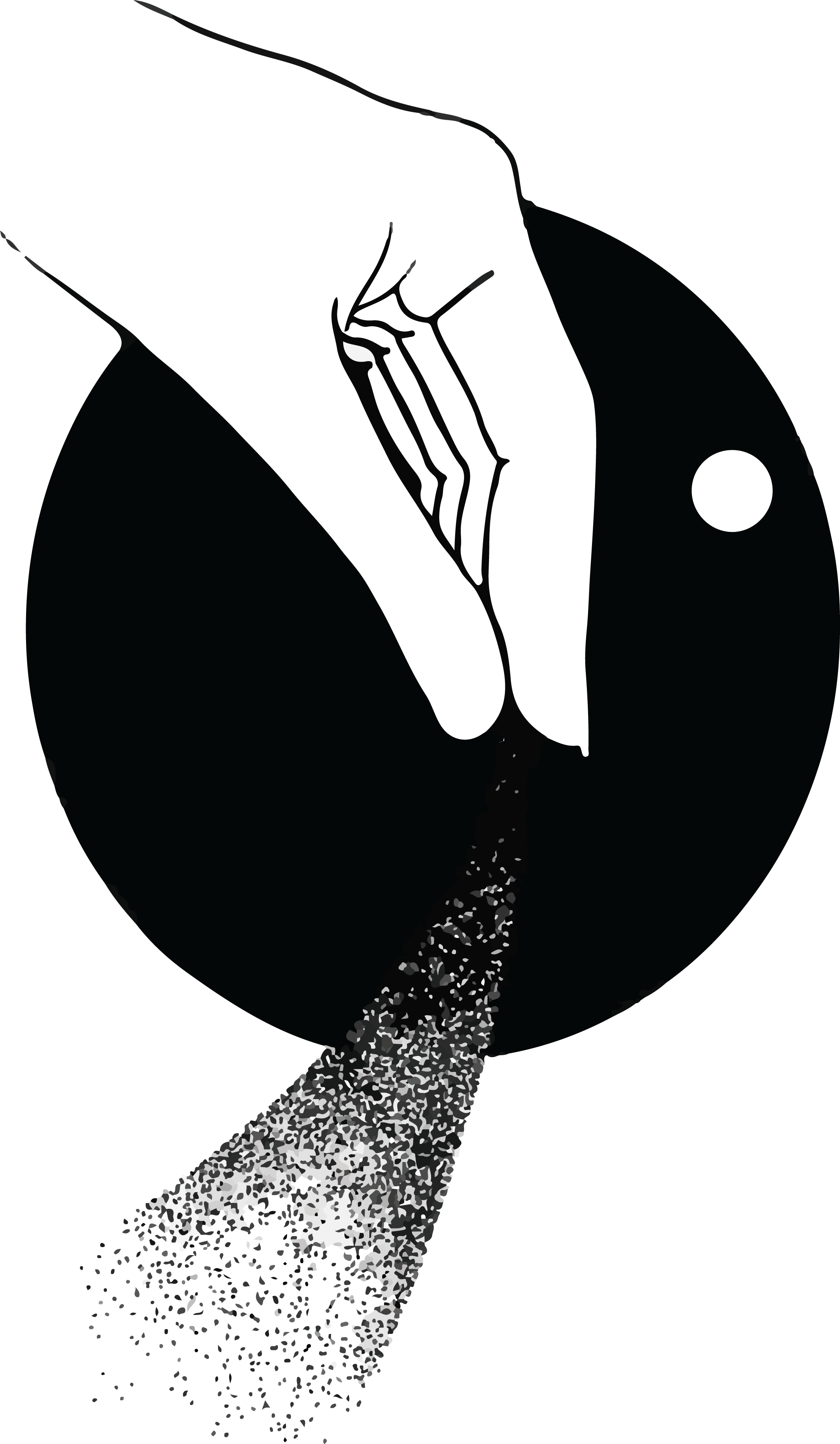
Jordan Reyes
Running American Dreams Records, Playing in ONO, Playing music as self. Recovering Noise Boy.
“I’ve had to choose between hopelessness and learning to make peace with impermanence,” says Chicago musician and American Dreams Records founder Jordan Reyes. Since childhood, he’s had a pronounced fear of death, and recent years with the ambient tragedy of the COVID pandemic as well cancer and death in close quarters has sparked a more deep existential dread, but one he’s dedicated to working through, excavating peace from nature, from surrender, and from the Zen mind. Out of this continuing journey came Everything Is Always, a collection of doom-sprinkled drone compositions and songs that shows Reyes working in an ensemble capacity considering death, the natural world, and ultimately perseverance.
To get there, Reyes found a new framework - Zen - though finding that path was not without its challenges. “In fall 2020, I was prescribed an antipsychotic for unmanageable anxiety,” he explains, “but the medication had a horrible effect - I couldn’t stop thinking of death, of infinite darkness, of terror.” This isn’t the first time psychopharmacology has upended Reyes’ life, but pulling the plug on the antipsychotic was the first step in getting better. “I went back to an SSRI,” he says, “but it would be months before the fear and crying stopped.” He looked for a spiritual antidote to the angry void. “The one thing I couldn’t argue with was Zen,” he says. “Suddenly that void was a portal, not an abyss.”
This is where Everything Is Always begins, and it lines up with another pursuit - training for his first marathon. “Most of my long-distance running is done on Chicago’s lakefront path,” he explains. “To run that path is to take the temperature of the city - you get a better understanding of the whole.” Lake Michigan’s waves rolling; leaves sprouting before dropping six months later; Chicagoans rushing to beach volleyball courts before retreating to their apartments. “The city was breathing,” Reyes explains, “and that cyclicality was profound. It mirrored what Bhante Henepola Gunaratana said in Mindfulness In Plain English - that breathing has no stopping point. I understood constant motion as a universal truth. Just as we were breathed out in the big bang, we will be breathed in with its collapse, and when the breath begins anew, all of the same matter and energy here now will be in that infinitesimally small point then.”
To carry that scale, Reyes enlisted friends and colleagues. On a song like “Would I Were A Moth,” with its plodding bass riff and steady spoken word meditation on a moth’s death drive, Chicago cellist, improviser, and composer Lia Kohl - who appears on all songs bu “Kraken” - provides an organic sensibility, droning alongside until swelling into a melody. On the same track, Sam Wagster of Mute Duo and Anatomy of Habit adds a tinkling pedal steel that sweeps through the song’s end with blossoming woodwind bursts from Patrick Shiroishi and Emily Harper Scott’s crooning vocals.
Some songs were written especially for other vocalists. For longform drone composition “Tralineation,” Reyes enlisted ONO bandmate and mentor travis for words and vocals. “travis is an artistic father figure,” he explains, “and constantly helps me through my fear of death.” On “tralineation,” travis re-appropriates mythology behind the old minstrel song “Old Black Joe,” interpreting it as a Black American, weaving in science fiction, transhumanism, and more atop pedal steel, cello, morse code modular synths, and bass guitar.
“Maybe I’m The Dust” is similar, written specifically for Reyes’ wife Ambre Sala to sing. Her gentle, evocative voice cracks open the song, considering the fear of death as an object - “So why does the crow not scare me?” she incants, “And why do they swarm my abode? I’m peering through a dark glass until I’m carried home.” Reyes’ voice joins her as a harmonic mate to carry the listener into a crashing bass guitar, a vehicle to break through fear, to reach the other side. We emerge into the album’s title track and mantra - “Everything Is Always,” a sung melody buffeted by Lia Kohl’s cello, Patrick Shiroishi’s saxophone, and Theresa May’s trumpet.
While abating fear is a continual process, Everything Is Always is a mark in the sand. “Putting this out, writing these words,” Reyes explains, “means I have a promise to keep working, learning about myself and the universe.” He’s far from enlightened, far from unafraid, but it’s clear that Reyes is committed, open-hearted, and willing to put in the work.
“I’ve had to choose between hopelessness and learning to make peace with impermanence,” says Chicago musician and American Dreams Records founder Jordan Reyes. Since childhood, he’s had a pronounced fear of death, and recent years with the ambient tragedy of the COVID pandemic as well cancer and death in close quarters has sparked a more deep existential dread, but one he’s dedicated to working through, excavating peace from nature, from surrender, and from the Zen mind. Out of this continuing journey came Everything Is Always, a collection of doom-sprinkled drone compositions and songs that shows Reyes working in an ensemble capacity considering death, the natural world, and ultimately perseverance.
To get there, Reyes found a new framework - Zen - though finding that path was not without its challenges. “In fall 2020, I was prescribed an antipsychotic for unmanageable anxiety,” he explains, “but the medication had a horrible effect - I couldn’t stop thinking of death, of infinite darkness, of terror.” This isn’t the first time psychopharmacology has upended Reyes’ life, but pulling the plug on the antipsychotic was the first step in getting better. “I went back to an SSRI,” he says, “but it would be months before the fear and crying stopped.” He looked for a spiritual antidote to the angry void. “The one thing I couldn’t argue with was Zen,” he says. “Suddenly that void was a portal, not an abyss.”
This is where Everything Is Always begins, and it lines up with another pursuit - training for his first marathon. “Most of my long-distance running is done on Chicago’s lakefront path,” he explains. “To run that path is to take the temperature of the city - you get a better understanding of the whole.” Lake Michigan’s waves rolling; leaves sprouting before dropping six months later; Chicagoans rushing to beach volleyball courts before retreating to their apartments. “The city was breathing,” Reyes explains, “and that cyclicality was profound. It mirrored what Bhante Henepola Gunaratana said in Mindfulness In Plain English - that breathing has no stopping point. I understood constant motion as a universal truth. Just as we were breathed out in the big bang, we will be breathed in with its collapse, and when the breath begins anew, all of the same matter and energy here now will be in that infinitesimally small point then.”
To carry that scale, Reyes enlisted friends and colleagues. On a song like “Would I Were A Moth,” with its plodding bass riff and steady spoken word meditation on a moth’s death drive, Chicago cellist, improviser, and composer Lia Kohl - who appears on all songs bu “Kraken” - provides an organic sensibility, droning alongside until swelling into a melody. On the same track, Sam Wagster of Mute Duo and Anatomy of Habit adds a tinkling pedal steel that sweeps through the song’s end with blossoming woodwind bursts from Patrick Shiroishi and Emily Harper Scott’s crooning vocals.
Some songs were written especially for other vocalists. For longform drone composition “Tralineation,” Reyes enlisted ONO bandmate and mentor travis for words and vocals. “travis is an artistic father figure,” he explains, “and constantly helps me through my fear of death.” On “tralineation,” travis re-appropriates mythology behind the old minstrel song “Old Black Joe,” interpreting it as a Black American, weaving in science fiction, transhumanism, and more atop pedal steel, cello, morse code modular synths, and bass guitar.
“Maybe I’m The Dust” is similar, written specifically for Reyes’ wife Ambre Sala to sing. Her gentle, evocative voice cracks open the song, considering the fear of death as an object - “So why does the crow not scare me?” she incants, “And why do they swarm my abode? I’m peering through a dark glass until I’m carried home.” Reyes’ voice joins her as a harmonic mate to carry the listener into a crashing bass guitar, a vehicle to break through fear, to reach the other side. We emerge into the album’s title track and mantra - “Everything Is Always,” a sung melody buffeted by Lia Kohl’s cello, Patrick Shiroishi’s saxophone, and Theresa May’s trumpet.
While abating fear is a continual process, Everything Is Always is a mark in the sand. “Putting this out, writing these words,” Reyes explains, “means I have a promise to keep working, learning about myself and the universe.” He’s far from enlightened, far from unafraid, but it’s clear that Reyes is committed, open-hearted, and willing to put in the work.

